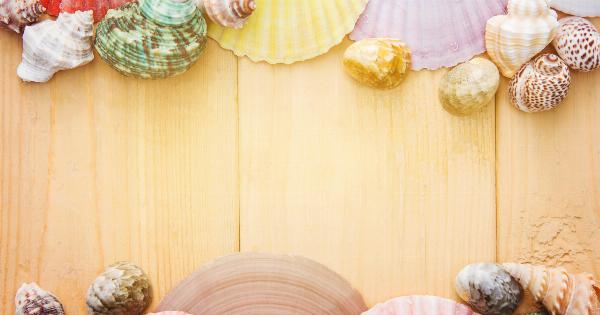Shellfish is a popular choice of seafood for many people. However, there are several myths and misconceptions surrounding shellfish that often lead to confusion and misinformation.
In this article, we will explore and dispel some of the common myths about shellfish, providing you with accurate information to make informed choices about including shellfish in your diet.
Myth 1: All shellfish are the same
One of the most prevalent myths about shellfish is that they are all the same.
In reality, shellfish is a broad term that encompasses a variety of aquatic animals with shells, including crustaceans (such as crabs, lobsters, and shrimp), mollusks (such as oysters, clams, and mussels), and cephalopods (such as squids and octopuses). Each type of shellfish has its own unique characteristics, flavors, and textures.
Myth 2: Shellfish are not nutritious
Contrary to popular belief, shellfish are highly nutritious and offer numerous health benefits.
They are an excellent source of high-quality protein, omega-3 fatty acids, vitamins (such as vitamin B12 and vitamin D), and minerals (such as iron, zinc, and selenium). Including shellfish in your diet can contribute to improved heart health, brain function, and overall well-being.
Myth 3: Eating shellfish will lead to high cholesterol levels
This is a common misconception that has been debunked by scientific research. While shellfish do contain dietary cholesterol, they are low in saturated fat, which has a greater impact on blood cholesterol levels.
In fact, shellfish can be part of a heart-healthy diet as they are a lean source of protein and contain beneficial omega-3 fatty acids.
Myth 4: Shellfish are more likely to cause food poisoning
While it is true that improper handling and cooking of shellfish can lead to foodborne illnesses, the same can be said for any type of food.
When handled and cooked properly, shellfish are safe to eat and do not pose a higher risk of food poisoning compared to other foods. It is important to ensure that shellfish is fresh, properly cleaned, and cooked to the appropriate internal temperature to reduce the risk of contamination.
Myth 5: Allergies to shellfish are the same as seafood allergies
Shellfish allergies are often mistaken for seafood allergies, which can lead to confusion and unnecessary food restrictions.
It is important to note that shellfish allergies specifically refer to an allergic reaction to shellfish, such as crabs, lobsters, and shrimp. Seafood allergies, on the other hand, include allergies to fish as well. If you have a shellfish allergy, it does not necessarily mean you are also allergic to fish, and vice versa.
Myth 6: Only raw shellfish can cause allergic reactions
Raw shellfish are often associated with allergic reactions, especially in the case of mollusks like oysters and clams.
However, it is important to note that shellfish proteins can trigger allergic reactions regardless of whether they are consumed raw or cooked. Cooking shellfish may reduce the risk of contamination and certain bacteria-related illnesses, but it does not eliminate the risk of allergic reactions in individuals with shellfish allergies.
Myth 7: Shellfish are only harvested in the summer months
While it is true that shellfish are often associated with summertime seafood cuisine, they are available and harvested throughout the year.
The peak seasons for certain shellfish species may vary, but advancements in aquaculture and sustainable fishing practices have made shellfish more accessible and available year-round. Whether it’s fresh clams for chowder or delicious crab cakes, you can enjoy shellfish any time of the year.
Myth 8: Pregnant women should completely avoid shellfish
Pregnant women are often advised to avoid certain types of seafood due to concerns about mercury levels. However, many types of shellfish are safe and can be included in a healthy pregnancy diet.
Low-mercury shellfish options include shrimp, crab, and scallops, which provide important nutrients to support the baby’s development. As with any dietary considerations during pregnancy, it is important to consult with your healthcare provider.
Myth 9: All farmed shellfish are unhealthy
While there have been concerns about the environmental impact of shellfish farming, it is important to note that not all farmed shellfish are unhealthy.
Sustainable shellfish farming practices have been developed to minimize environmental impact and ensure the safety and quality of the products. When purchasing farmed shellfish, look for certifications such as organic or sustainable farming practices to make responsible choices.
Myth 10: Shellfish should be avoided due to high levels of mercury
Although some larger fish species tend to accumulate high levels of mercury in their bodies, most shellfish have lower mercury levels. The U.S.
Food and Drug Administration (FDA) and the Environmental Protection Agency (EPA) recommend that pregnant women, breastfeeding mothers, and young children avoid certain high-mercury fish species but can safely consume a variety of shellfish, including shrimp, crab, and scallops, as part of a balanced diet.































